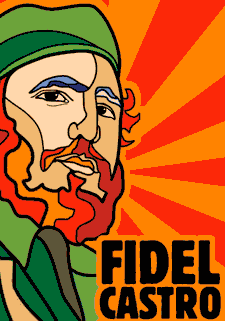Castro's Shadow

In July 1961, the CIA warned that "the extensive influence of 'Castroism' is not a function of Cuban power. . . . Castro's shadow looms large because social and economic conditions throughout Latin America invite opposition to ruling authority and encourage agitation for radical change," for which Castro's Cuba provided a model. Earlier, Arthur Schlesinger had transmitted to the incoming President Kennedy his Latin American Mission report, which warned of the susceptibility of Latin Americans to "the Castro idea of taking matters into one's own hands." The report did identify a Kremlin connection: the Soviet Union "hovers in the wings, flourishing large development loans and presenting itself as the model for achieving modernization in a single generation." The dangers of the "Castro idea" are particularly grave, Schlesinger later elaborated, when "the distribution of land and other forms of national wealth greatly favors the propertied classes" and "the poor and underprivileged, stimulated by the example of the Cuban revolution, are now demanding opportunities for a decent living." Kennedy feared that Russian aid might make Cuba a "showcase" for development, giving the Soviets the upper hand throughout Latin America.
Hegemony or Survival Chomsky
"The U.S. government says that a socialist regime here threatens U.S. security. But what threatens the security of the North American people is the aggressive policy of the warmongers of the United States. What threatens the security of the North American family and people is the violence, that aggressive policy, that policy that ignores the sovereignty and the rights of other peoples. The one who is threatening the security of the United States is Kennedy, with that aggressive policy. That aggressive policy can give rise to a world war; and that world war can cost the lives of tens of millions of North Americans. Therefore, the one who threatens the security of the United States is not the Cuban Revolutionary Government but the aggressor and aggressive government of the United States.
"We do not endanger the security of a single North American. We do not endanger the life or security of a single North American family. We, making cooperatives, agrarian reform, people's ranches, houses, schools, literacy campaigns, and sending thousands and thousands of teachers to the interior, building hospitals, sending doctors, giving scholarships, building factories, increasing the productive capacity of our country, creating public beaches, converting fortresses into schools, and give the people the right to a better future-we do not endanger a single U.S. family or a single U.S. citizen." —Fidel Castro's speech at Havana's May Day celebrations on May 2, 1961, soon after the Bay of Pigs Invasion